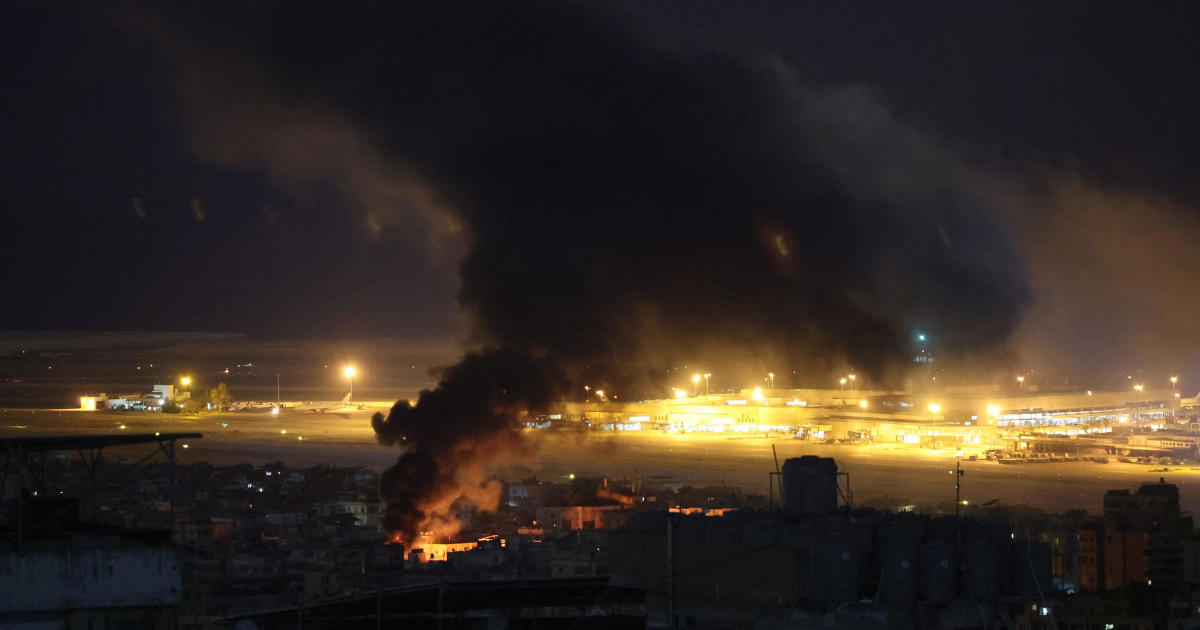The ongoing conflict between Israel and Hezbollah has escalated dramatically, resulting in widespread devastation and displacement across Lebanon. Israel’s recent airstrikes, targeting what it claims is Hezbollah’s financial arm, Al-Qard Al-Hassan Association, have intensified the situation, causing significant damage and raising serious humanitarian concerns. The strikes, launched in retaliation for an alleged assassination attempt on Israeli Prime Minister Benjamin Netanyahu, have triggered a cycle of violence with potentially far-reaching consequences for regional stability. This analysis will explore the key aspects of this escalating conflict, examining the justifications for the strikes, the humanitarian impact, and the potential for further escalation.
Israel’s Justification for the Strikes
Israel claims the airstrikes were a necessary response to Hezbollah’s alleged attempts to assassinate Prime Minister Netanyahu and to disrupt Hezbollah’s financial capabilities. The Israeli Defense Forces (IDF) assert that Al-Qard Al-Hassan is a key component of Hezbollah’s financial infrastructure, providing crucial funding for its military operations, including weapons procurement and payments to operatives. The IDF states that billions of dollars are held within Al-Qard Al-Hassan’s branches across Lebanon, funds they claim are directly linked to terrorist activities. This justification, however, is disputed by various international organizations and Lebanese officials.
The Legality of the Strikes
The legality of the strikes is highly contested. The Legal Agenda, a Lebanese research organization, accuses Israel of committing war crimes, highlighting the lack of declared legitimate military objectives for the attacks on Al-Qard Al-Hassan. The IDF asserts that measures were taken to minimize civilian casualties, but reports suggest otherwise. International law requires clear distinction between military and civilian targets and requires proportionality of response; these conditions are widely disputed in the current conflict.
Hezbollah’s Role in the Escalation
Hezbollah’s role in escalating the conflict is undeniable. The group’s alleged attack on Netanyahu’s residence and the ongoing launch of rockets and drones across the border into Israel significantly contribute to the unstable regional situation. The IDF notes thousands of weapons fired over the last year, and Iran’s support and involvement is not understated by their own missile attacks on Israel. While Hezbollah’s actions are considered terrorist acts by many countries, their motivations stem from the ongoing conflict, making their actions and Israel’s response an interlinked issue.
The Humanitarian Crisis in Lebanon
The ongoing airstrikes are causing immense suffering to the civilian population of Lebanon. The attacks are severely straining already overwhelmed hospitals, further worsening the healthcare crisis in the country. More than 1.2 million people are currently displaced due to the fighting, struggling to find safe haven. Many are living in makeshift shelters, facing challenging living conditions and significant uncertainties regarding their future. This humanitarian cost of the conflict far outweighs immediate military gains for either side.
The Impact on Civilians
The human cost is immense and harrowing. CBS News reports recount personal stories from displaced Lebanese citizens, highlighting the trauma and hardship endured by those caught in the conflict’s crossfire. Testimonies highlight a sense of both fear and resilience in the face of relentless attacks and displacement.
International Response to the Humanitarian Crisis
The escalating humanitarian crisis demands a strong international response, though as of now such is not strongly seen on the world stage. International organizations, including those affiliated with the UN, must actively provide support and resources to aid displaced civilians, especially women and children. Immediate efforts should concentrate on emergency relief, including medical aid, food supplies, and shelter provision. Further, addressing the root causes of the conflict becomes paramount for long-term stability.
The Potential for Further Escalation
The current conflict holds significant potential for further escalation. The ongoing airstrikes and retaliatory attacks create a dangerous cycle of violence, placing the entire region at risk. Iran’s support for Hezbollah introduces another unpredictable factor into the equation, adding further potential triggers to an already precarious situation. The response by the US is not as strong as might be expected, demonstrating perhaps a desire to limit further escalation, although this restraint doesn’t fully solve the issues presented in the current conflict.
The Role of External Actors
The involvement of external actors like Iran and the US adds complexities to the conflict. While the US provides aid to Israel and seeks diplomatic engagement, its stated limitations regarding any potential counterattack against Iranian assets illustrate the delicate balance sought to be maintained. However, this calculated approach may not be entirely successful and doesn’t address the fundamental causes of the conflict which lie in deeper power dynamics and proxy wars within the region. A broader effort to defuse the conflict may depend on such a more strategic approach.
The Prospects for Peace
Reaching a sustainable peace requires multifaceted approach encompassing conflict resolution strategies to mitigate the ongoing violence. Long-term solutions rely on address political, social, and economic roots of the conflict. Regional cooperation and sustained international diplomatic engagement are essential. However, the success of this approach will hinge on mutual compromise from all parties involved, something far from a guaranteed outcome given the current level of tension. Ultimately a balance will be needed between security concerns and achieving regional peace and long-term stability.
Takeaway Points
- The Israeli airstrikes in Lebanon, while justified by Israel as a response to Hezbollah’s actions, have resulted in a substantial humanitarian crisis.
- The legality and morality of these strikes remain strongly contested. This highlights the absence of agreed international processes to adjudicate in cases of asymmetric warfare in which non-state actors take significant roles.
- The ongoing cycle of violence, fueled by the conflict between Israel and Hezbollah and involving Iran, presents a high risk for further escalation.
- An immediate humanitarian response is crucial to address the plight of Lebanese civilians affected by displacement.
- Lasting peace necessitates a comprehensive diplomatic strategy, aiming to address the complex political and security challenges that fuel this protracted conflict. Simply allowing this escalation and responding on a limited scale is not a complete or successful response to a multifaceted issue of high human cost.




